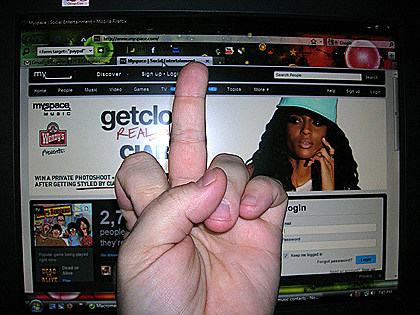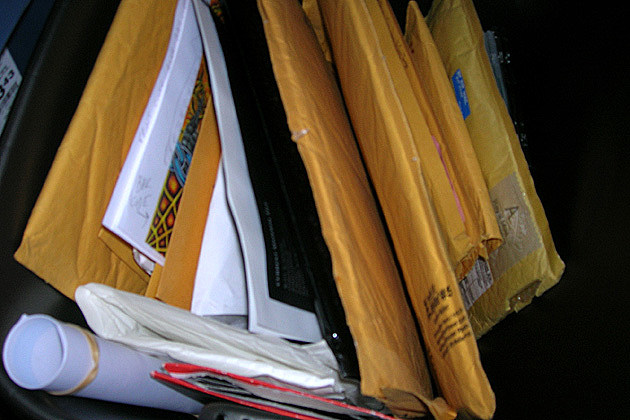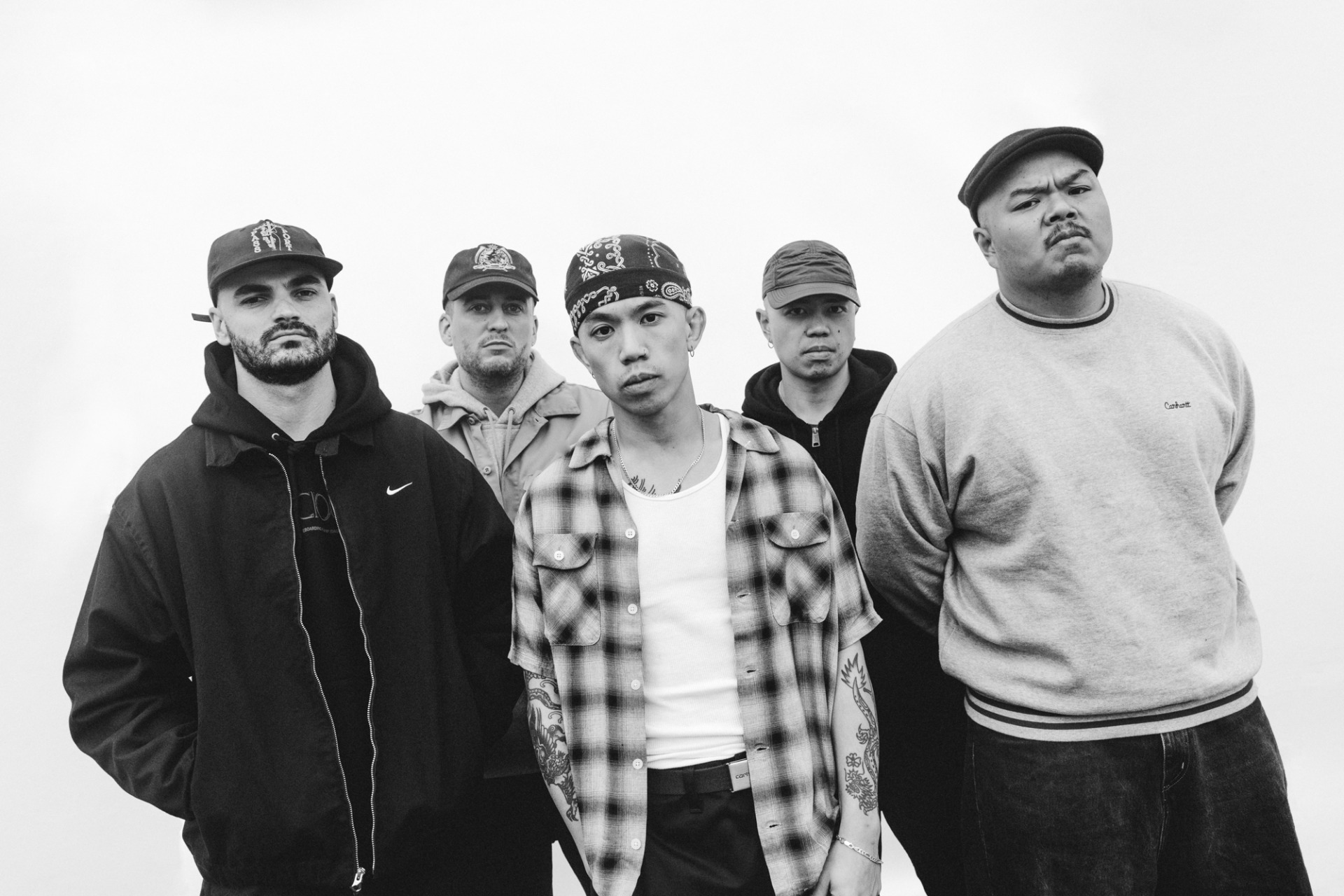
Anatomy of a Release, Pt. 1: Signing a Band

The Path Less Traveled Records is one of my favorite up-and-coming labels. In the past two years, we’ve reviewed its releases by Imbroglio, Body Hammer, and Flourishing. Right now I’m transcribing an interview with Pristina and digesting a cool math rock group called STATS. New discs are on the way from Humanity Falls and Imbroglio, and the label just unveiled a lifetime membership deal. The Path Less Traveled has a lot going on, so I asked label head Sean Crook to let us in on it. In this series entitled “Anatomy of a Release”, he will trace the process of a release from start to finish. This first installment deals with signing a band. – C.L.
. . .
ANATOMY OF A RELEASE
PT. 1
SIGNING A BAND
. . .
Greetings, everyone! My name is Sean, and I run The Path Less Traveled Records. I’ll be bringing you these blog posts under a series titled “Anatomy of a Release” to give you an idea of what goes into putting out a release (in this case a CD). Those that follow my blog may have seen me go through this idea, but this will go a little further in detail. There are many misconceptions about what goes into putting out a CD, so let’s clear this up, shall we?
To start a label, you need bands. All labels typically have an approach to signing bands. If you’re Relapse, you wait for a band to be hyped and sign them because you have more money than other underground labels (just kidding, Relapse). If you’re a one-man show like mine, you have to do a lot of research. This usually entails listening to demos sent in the mail or email, checking out bands that are opening for other bands, magazines, blogs, you name it. All the while, I’m trying to keep up with the bands I like and want to listen to that are already signed. Needless to say, I spend a lot of time listening to music. If I lived in a big city, I’d be going to shows a lot to check bands out, but I live in the middle of nowhere in Illinois. For a decent show, it usually means driving 2 1/2 hours to Chicago or going the opposite way to St. Louis.
It’s no secret that some bands put up a MySpace page, copy the link, and troll message boards posting the link of their band saying how brutal, extreme, kvlt, tr00, etc. their band is. Many times this is tame, trite, generic, dull, etc. music. However, when you run a label, and you’re looking for bands to work with, you have to click on these links. One day, someone posting as the name “kenkoopa” on Decibel magazine’s forum, posted a link, and if I remember correctly, it was this YouTube video instead of a MySpace link:
. . .
The video that got Kaliya signed
. . .
I was pretty sure it was a joke, and that these guys were already signed to Metal Blade, Century Media, or Relapse, and this was a label person posting it. The musicianship and quality of the song blew me away, and the hair stood up on my arms. I realize that may not be the opinion of some folks, and that’s OK. I like all types of metal, and I heard this song, and it had elements of death metal, hardcore, and grind (all of which I love), but done correctly in the form of a real song. So, I sent this “kenkoopa” an email, and after that and a few phone calls, the deal was done. When I hear music I want to be involved with, and I’m able to convince a band to work with me amongst all the competition out there, it’s a pretty good feeling.
Before I sign a band, the obvious criterion is the band has to be good. You need faith in your own taste in music. I keep my eyes and ears open at all times. If I find a band I like through a metal news site, a blog, a review, or even MySpace (not so much anymore due to it being clunky), I send them a nice note saying who I am, and if they don’t have a label, I’d be interested in working with them at some point. If I don’t hear back, I rarely send a follow-up email. We’re all inundated with information these days, and the last thing a band needs is some label begging them for attention. Two key attributes I look for are integrity and longevity. I’ve taken chances and gone with my gut, but typically if a band has only been together less than a year, I stay away unless I’m completely blown away. The integrity is extremely important and hard to judge over email. I try to work with folks in it for the music and not for making a ton of cash or getting laid. It’s not that those things are bad, but they shouldn’t be the primary reason you play music, in my opinion.
I had a band ask what I could offer them after an email exchange. At the time, I had little money and said I could put their CD together and throw $500 towards recording (and that was pushing it). In return, I got a lengthy email talking about how they had an “investor” who had already put $20,000 (that’s not a typo) into the band and paid for recording, booking shows, etc., and this guy in return would get a cut of any money they made in the future. Basically, the email went on for some time about how I wasn’t a real label, and they hoped it didn’t sound TOO harsh. The email was extremely unprofessional, and I replied with a very professional email wishing them all the best. Last I checked, they were broken up. I approached Howl a couple years ago as well, and they knew they were destined for bigger things. However, they were polite and said thanks but no thanks and offered to carry my future releases at their shows. They have since signed to Relapse and gone on to great things.
. . .

. . .
Which brings me to my competition. When you’re up against the big labels, you have very little you can do as far as money is concerned and what you can offer a band. I can’t afford a full page ad in every magazine (a full page ad can run from $1,000 to $3,000 PER ISSUE). So why the hell would a band sign with me? There’s a thing in this industry called “recoup”. Typical labels pay for everything from recording to CD’s being printed and give the band money up-front. Sounds great, right? The kicker is that money is usually a loan that is paid back in sales before the bands sees another dime. If the band doesn’t sell enough units (I hate this term, by the way), they end up owing the label money. I thought I would throw a curve and tell bands to record, mix, and master and pay for that part of it; I’ll put the CD out and promote it a bit, and we split every sale 50/50. We both start collecting income on day one. Odds are most of the small, independent labels operate this way. There is a band I like a lot that is considering me and weighing their options, and I’m pretty sure I’m up against some of the big labels due to their popularity in their region (or “market” ,as we like to call it). Time will tell, so stay tuned.
The good thing about running a small label is there’s no need for contract negotiations (more or less). It’s pretty cut-and-dry. When it comes to actually “signing on the dotted line”, there isn’t much to the contract. I have a three-page contract that is very basic. This is me, this is you, this is what you give me and what I give you, and we’re done. I know some bigger labels have contracts that require a lawyer, and unless you know someone, lawyers aren’t cheap. Sometimes we agree on terms through an email, and that’s the end of it. However, I’ve been screwed over one major time, and from now on, I will require a contract. In the past, I haven’t made a band sign a contract, but I like to meet the bands ahead of time if I can and just show them I’m a no-nonsense-type person, and I’m not in this to screw them out of their art. I’ve been very lucky so far in that I haven’t met a band yet that has said my deal sucks and I should hang it up. The bad part of all of this is most bands I sign live nowhere near me, so meeting them is nearly impossible. (I had a band ask if I was going to fly them out here to sign the contract.) I’d love to be on this level, but I’m nowhere near it (yet).
. . .

. . .
If I can meet up with them, it’s typically over a few beers and some food. If I have decided to sign a band, it’s usually based on the fact that they seem like cool folks, they’ve been together for a bit, and if I didn’t sign them, I’d still be a fan. If I hate the music, I won’t sign them, even though they may be “the next big thing” or everyone in the “scene” likes the band. If my heart isn’t in it, I don’t get excited about the band, and that wouldn’t be good for them or me.
So through all of this, I now have a band called Kaliya that I will be putting out a CD for in the coming months. What’s next? Music must be made, art created, release date set, and deadlines met months in advance for this all to come together.
Thanks for taking the time to read this, and stay tuned to Invisible Oranges to follow me and Kaliya on our journey into the Anatomy of a Release!
The Path Less Traveled Records
. . .
THE PATH LESS TRAVELED RECORDS
. . .










